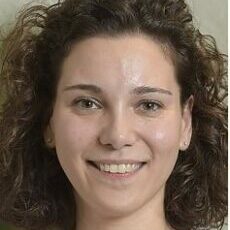Research Interests
Maria Christakis’s research goal is to develop theoretical foundations and practical tools for building more reliable and usable software and increasing developer productivity. She is primarily interested in software engineering and formal methods, in particular investigating topics in automatic test generation, program analysis, and software verification. Her tools and techniques explore novel ways in writing, specifying, verifying, testing, and debugging programs in order to make them more robust while improving the developer experience.
Bio
Maria Christakis received her diploma degree in Computer Science from the National Technical University of Athens, Greece in 2009 and her Ph.D. degree from the ETH Zurich, Switzerland in 2015.
From 2009 to 2011 she worked as research assistant in Computer Science at the Department of Electrical and Computer Engineering at the National Technical University of Athens. After that Maria Christakis joined the ETH Zurich to complete her Ph.D. and was Chair of Programming Methodology at the Department of Computer Science from 2011 to 2015. The following years she was Post-doctoral researcher at Microsoft Research Redmond, Washington, USA (2015-2016) and Lecturer (Assistant Professor) at the School of Computing at the University of Kent in Canterbury, England (2016-2017). Before she held her current position, she was Tenure-track faculty and Head of the Practical Formal Methods Group at the Max Planck Institute for Software Systems in Germany (20017-2022).
She worked on the following research projects, among others GreenBench: A green fuzzer-benchmarking platform, Nomos: A Specification language and framework for expressing and testing k-safety properties of machine-learning models and DLSmith: A dependency-aware metamorphic-testing framework for Datalog engines.
She received numerous awards like the Amazon Research Award (Fall 2023), ERC Starting Grant (2022), and Google Research Scholar Award (2022).
